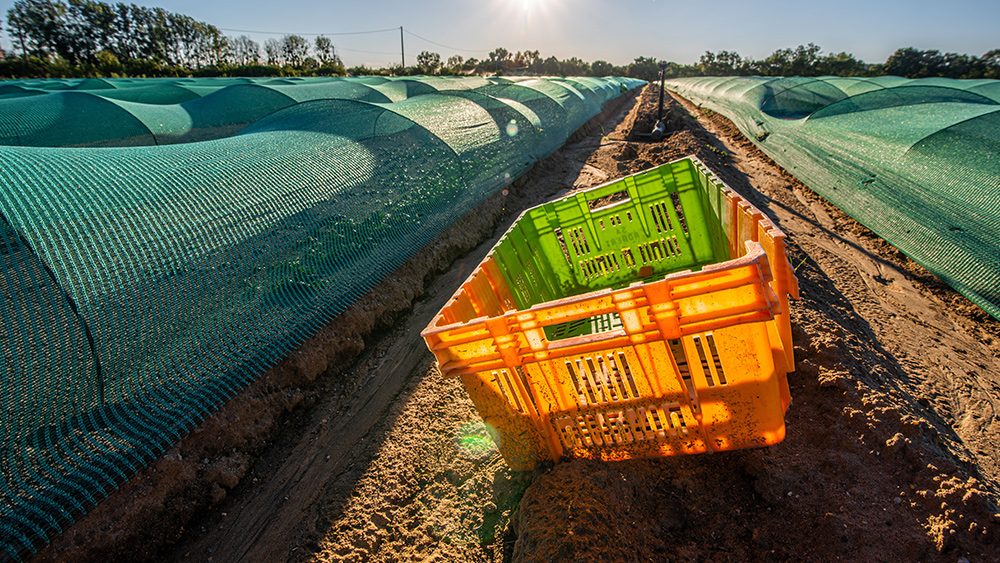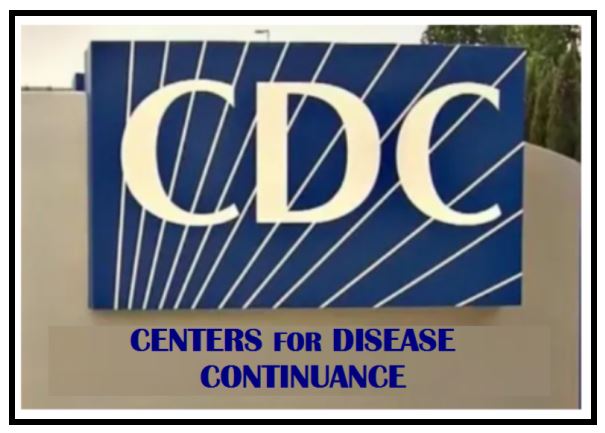Sovereign nations must reclaim their food systems and decentralize nutritious food production before populations are exploited and starved to death
08/13/2024 / By Lance D Johnson

Powerful international forces are clamoring to take control over the food supply. Crises, like COVID-19 lockdowns, climate change policies and carbon restriction mandates are being engineered, so these powerful forces can shape the future of the food supply and exploit the populations. Investment firms like BlackRock, Vanguard, State Street, Fidelity and Capital Group are able to control the future of food by investing in food corporations, pesticide manufacturers, pharmaceutical companies and agribusiness conglomerates. Populations are extremely vulnerable because the food system is being increasingly centralized, is dependent on global factors and is controlled by big money interests. In the book — Sickening Profits: The Global Food System’s Poisoned Food and Toxic Wealth — the current issues with the food system are addressed.
Sickening Profits exposes the issues with the global food system and the perpetrators behind the chronic disease epidemic
Chapter one presents a critical view of how modern financial practices shape agricultural systems and food quality. It emphasizes the negative consequences for smallholder farmers, the environment and public health, arguing that the pursuit of profit by major asset management firms undermines sustainable and equitable food systems.
Chapter Two emphasizes the need to challenge the current policy agenda, which prioritizes global markets and processed foods over public health. It advocates for strengthening local markets, short supply chains and agroecological farming to promote healthier diets. The chapter underscores the importance of supporting small-scale enterprises and traditional food practices to counteract the negative effects of ultra-processed foods and improve overall health outcomes.
Chapter Three exposes the harmful effects of the modern food system, driven by corporate interests, and calls for substantial reforms to create a healthier and more equitable food environment. It argues for a shift away from a profit-driven model towards one that prioritizes human health and local food economies. This includes strengthening local markets, supporting small-scale organic farming and reducing reliance on processed foods. The chapter emphasizes the need for a long-term movement to transform the food system, advocating for policies that protect public health and address food insecurity without compromising nutritional quality.
Chapter Four “Toxic Contagion: Funds, Food, and Pharma,” exposes the deep entanglement between financial capital, corporate control and global food systems. It reveals how institutional investors shape and profit from both the agrifood and pharmaceutical industries, perpetuating a cycle of exploitation, poor health and ecological harm.
Chapter Five encapsulates the ongoing battle to remove toxic glyphosate and other agrochemicals; however, it’s the power of corporations that make this a dead-end battle. These corporations shape regulations, manipulate science and prioritize profits over people. The challenge is to hold these corporations accountable, to get their toxic products removed from the food supply.
In Chapter Six we’re reminded of the persistent patterns of corporate influence, deceptive marketing and environmental degradation that reflect a need for a shift in how we approach agriculture and food systems. While companies like Union Carbide have promoted their technologies as solutions, the reality often reveals significant risks and failures. Embracing sustainable practices and respecting local knowledge can offer a more viable path forward for food security and environmental health abroad.
In Chapter Seven the issue of GMOs is addressed. The assertion that GMOs are essential for feeding the world overlooks the complex realities of global food systems and agricultural practices. The focus should be on addressing food distribution inequities, supporting sustainable farming practices and ensuring that policy decisions prioritize the needs of farmers and local communities. The rhetoric of GMOs as a ‘solution’ to hunger masks deeper issues within the global food regime and the influence of corporate interests on agricultural policies.
Chapter Eight critiques the corporate-led food transition as a green-washed strategy that reinforces existing power structures and benefits big agribusiness and tech giants under the guise of sustainability and climate action. True food security and environmental health require a shift towards genuinely sustainable and localized agricultural practices, with an emphasis on maintaining environmental biodiversity – and not some war on carbon.
Chapter Nine takes on the ecomodernist vision of a future dominated by biotech and urbanization.
Chapter Ten uses the situation in the Netherlands as a microcosm of the larger global debate over the future of food and agriculture. The tensions between technological advancements and traditional farming practices, between corporate interests and local autonomy, highlight the problems with the United Nations and their exploitative climate change policies.
Chapter Eleven addresses the struggle against genetically mutilated food and ecomodernist ideologies. It requires a critical examination of the techno-industrial model, a commitment to sustainable and equitable alternatives and a willingness to resist the forces of corporate dominance and technological control.
Finally, Chapter Twelve looks at the current food crisis, which is not an unforeseen calamity, but a crisis by design, driven by policies that prioritize corporate profits and geopolitical dominance over human needs and environmental sustainability. The COVID-19 plandemic and ongoing climate change economic policies are starving populations and driving up the price of food, while making a way for multinational businesses to control the food supply so they can introduce synthetic, lab-grown strains, ramp up a new processed food industry infused with insects and other filth, and spread GMOs and other pesticide-ridden foods across the planet.
Access the Sickening Profits eBook here.
Sources include:
Submit a correction >>
Tagged Under:
#nutrition, accountability, agricultural policies, agrochemicals, asset management firms, biodiversity, climate change propaganda, corporate greed, corruption, decentralization, deception, deceptive marketing, environmental degradation, exploitation, farming practices, food supply, Globalism, globalization, glyphosate, GMOs, hunger, money supply, population control, Suppressed, sustainability, technological control, toxins, urbanization, world agriculture
This article may contain statements that reflect the opinion of the author




















